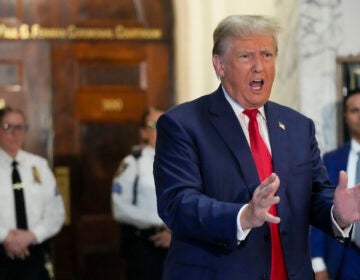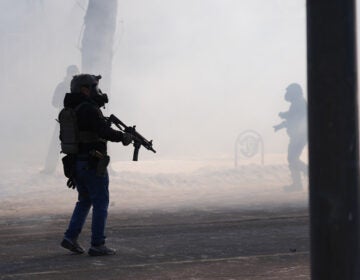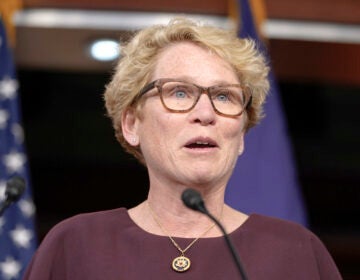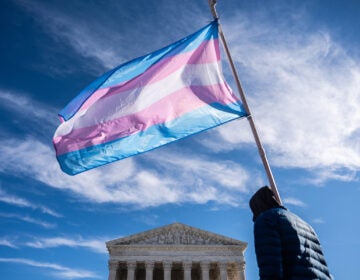Evidence at New York fraud trial shows that Trump’s financial statements were key to a loan deal
Trump said in pretrial testimony that he never thought the statements “would be taken very seriously.”
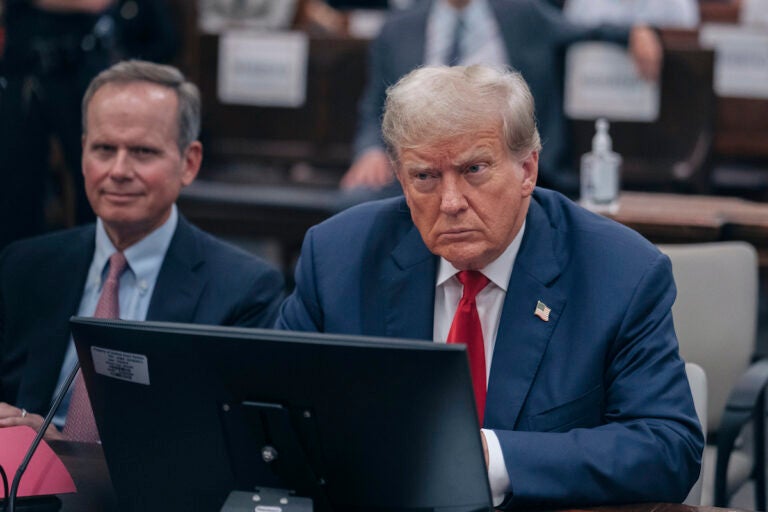
An accountant who prepared Donald Trump’s financial statements has finished his testimony after four days on the witness stand in the New York civil trial examining whether the former president exaggerated his wealth. Trump himself didn’t attend the proceedings Thursday. (Jeenah Moon/The New York Times via AP, Pool, File)
- Former President Trump faces 91 felony counts in four criminal cases in Washington, New York, Florida, and Georgia.
- Trump was charged with violating Georgia’s anti-racketeering law by scheming to illegally overturn his 2020 election loss. He’s also accused of election interference in a separate federal indictment.
- In June, Trump was charged with hoarding classified documents and refusing government demands to give them back.
- In March, Trump was indicted in New York on state charges stemming from hush money payments made during the 2016 presidential campaign.
Former President Donald Trump has said he never thought his yearly financial statements “would be taken very seriously.” But evidence Thursday at his New York civil fraud trial showed the statements were integral to some of his business empire’s loan deals.
A state lawyer showed letters that former Trump company controller Jeffrey McConney sent to a bank, saying he was providing Trump’s 2015 and 2016 financial statements as required under the conditions of a loan for his Seven Springs estate north of New York City.
McConney was the first ex-insider from the Trump Organization to testify at the trial, where New York Attorney General Letitia James is alleging that Trump and his business deceived banks, insurers and others with fraudulent financial statements that vastly overvalued Trump Tower, Mar-a-Lago and other assets.
Trump denies any wrongdoing and says James, a Democrat, is just trying to damage his 2024 presidential campaign. He’s leading the Republican field.
Trump denies any wrongdoing and says James, a Democrat, is just trying to damage his 2024 presidential campaign. He’s leading the Republican field.
Trump himself didn’t attend the proceedings Thursday, after choosing to be there — and avail himself of the news cameras waiting outside — for the three prior days.
The financial statements went to lenders, insurers and others. Nonetheless, Trump said in pretrial testimony that he never felt the statements “would be taken very seriously,” and that people who did business with him were given ample warn
Trump himself didn’t attend the proceedings Thursday, after choosing to be there — and avail himself of the news cameras waiting outside — for the three prior days.
Trump said in pretrial testimony that he never felt the financial statements “would be taken very seriously.” People who did business with him were given ample warning not to trust them, he said.
He described the documents as “a fairly good compilation of properties,” rather than a true representation of their value, and said some numbers were “guesstimates.”
James, however, has said the statements were the crux of “persistent and repeated fraud.”
McConney worked at the Trump Organization from 1987 until this past February and had deep knowledge of the company’s transactions. At the company’s criminal tax fraud trial last year, McConney admitted breaking the law to help fellow executives avoid taxes on company-paid perks, including by filing false tax returns and failing to report the benefits to tax authorities.
He was granted immunity to testify for the prosecution in the trial, which ended in the company’s conviction. Trump himself wasn’t charged in that case.
McConney took the stand at the current civil trial after days of testimony from two accountants who worked on the financial statements.
James’ legal team sought to demonstrate that Trump and his company had complete control over the preparation of the statements, with the outside accountants relying on information the Trump Organization provided. The defense tried to show that if there were problems with the financial statements, the flubs were accountant Donald Bender’s fault.
Bender, who prepared the statements for years, insisted Thursday that he asked Trump Organization executives for all required documents but didn’t always get them. He said he learned about some missing appraisals only when Manhattan prosecutors questioned him during their investigation into Trump’s business practices.
Defense lawyer Jesus M. Suarez asked why Bender didn’t notice the appraisals’ absence earlier.
“I asked them for appraisals,” Bender said. “They represented they gave me everything I needed.”
Defense attorneys also went after Bender for replying to dozens of questions, over his days of testimony, by saying he didn’t remember.
The non-jury trial concerns allegations of conspiracy, insurance fraud and falsifying business records. James is seeking $250 million in penalties and a ban on Trump doing business in New York.
Judge Arthur Engoron ruled on some other claims before the trial, finding that Trump did engage in fraud by inflating his assets’ worth on the statements.
The ruling, which Trump appealed Wednesday, calls for dissolving the limited liability companies that control Trump Tower and some other prominent holdings and having a receiver operate them. Trump would lose his authority over choosing tenants, hiring or firing employees and other key decisions regarding those properties.
In an order Thursday, Engoron ordered both sides to submit names of potential receivers by Oct. 26. He also gave Trump and other defendants seven days to give a court-appointed monitor a list of all entities covered by the ruling.
Engoron also told the defendants to give the monitor, retired federal Judge Barbara Jones, advance notice of any application for new business licenses in any jurisdiction and any attempts to create new entities to “hold or acquire the assets” of a company that’s being dissolved under the ruling.
Along with the civil lawsuit, Trump is also fighting a series of criminal cases. He has pleaded not guilty to charges of plotting to overturn his 2020 election loss to Democrat Joe Biden, illegally hoarding classified documents and falsifying business records related to hush money paid on his behalf.
Trump’s lawyers asked a judge in a filing late Wednesday to dismiss the hush money case in a New York court, then filed Thursday to try to get the federal election subversion case thrown out in Washington.
The defense attorneys called the hush money case a “discombobulated package of politically motivated charges marred by legal defects.” Manhattan District Attorney Alvin Bragg’s office said it would respond in court papers due next month. Bragg, a Democrat, has defended the indictment as a product of a “rigorous, thorough investigation.”
In the election case in Washington, Trump’s lawyers are claiming that his actions were part of his presidential role so aren’t subject to prosecution. Federal prosecutors are expected to contest that argument.
ing not to trust them.
He described the documents as “a fairly good compilation of properties,” rather than a true representation of their value, and said some numbers were “guesstimates.”
James, however, has said the statements were the crux of “persistent and repeated fraud.”
McConney worked at the Trump Organization from 1987 until this past February and had deep knowledge of all the company’s transactions. At the company’s criminal tax fraud trial last year, McConney admitted breaking the law to help fellow executives avoid taxes on company-paid perks, including by filing false tax returns and failing to report the benefits to tax authorities.
He was granted immunity to testify for the prosecution in the trial, which ended in the company’s conviction. Trump himself wasn’t charged in that case.
McConney took the stand at the current civil trial after days of testimony from two accountants who worked on the financial statements.
James’ legal team sought to demonstrate that Trump and his company had complete control over the preparation of the statements, with the accountants relying on information the Trump Organization provided. The defense tried to show that if there were problems with the financial statements, the flubs were accountant Donald Bender’s fault.
Bender, who prepared the statements for years, insisted Thursday that he asked Trump Organization executives for all required documents but didn’t always get them. He said he learned about some missing appraisals only when Manhattan prosecutors questioned him during their investigation into Trump’s business practices.
Defense lawyer Jesus M. Suarez asked why Bender didn’t notice the appraisals’ absence earlier.
“I asked them for appraisals,” Bender said. “They represented they gave me everything I needed.”
After Bender testified that he had a “specific memory” of asking a Trump lieutenant for all available appraisals, defense lawyer Clifford Robert pointed out that Bender had replied to dozens of other questions by saying he didn’t remember. Robert — who represents Trump sons and company Executive Vice Presidents Eric Trump and Donald Trump Jr. — suggested the accountant was worried that his testimony could lead to trouble with accounting regulators or law enforcement authorities.
The non-jury trial concerns allegations of conspiracy, insurance fraud and falsifying business records. James is seeking $250 million in penalties and a ban on Trump doing business in New York.
Judge Arthur Engoron ruled on some other claims before the trial, finding that Trump did engage in fraud by inflating his assets’ worth on the statements.
The ruling, which Trump appealed Wednesday, calls for dissolving the limited liability companies that control Trump Tower and some other prominent holdings and having a receiver operate them. Trump would lose his authority over choosing tenants, hiring or firing employees and other key decisions regarding those properties.
In an order Thursday, Engoron ordered both sides to submit names of potential receivers by Oct. 26. He also gave Trump and other defendants seven days to give a court-appointed monitor a list of all entities covered by the ruling.
Engoron also told the defendants to give the monitor, retired federal Judge Barbara Jones, advance notice of any application for new business licenses in any jurisdiction and any attempts to create new entities to “hold or acquire the assets” of a company that’s being dissolved under the ruling.
Along with the civil lawsuit, Trump is also fighting a series of criminal cases. He has pleaded not guilty to charges of plotting to overturn his 2020 election loss to Democrat Joe Biden, illegally hoarding classified documents and falsifying business records related to hush money paid on his behalf.
Trump’s lawyers asked a judge late Wednesday to dismiss the hush money case, which Manhattan District Attorney Alvin Bragg brought in a courthouse a block away from the civil trial.
“After a five-year meandering, halting, and roving investigation that entailed inexplicable and unconstitutional delay, the district attorney’s office filed a discombobulated package of politically motivated charges marred by legal defects,” lawyers Todd Blanche and Susan Necheles wrote in court papers. Bragg is a Democrat.
His office said it would respond in court papers due Nov. 9. Bragg has defended the indictment, saying his office “conducted a rigorous, thorough investigation.”
WHYY is your source for fact-based, in-depth journalism and information. As a nonprofit organization, we rely on financial support from readers like you. Please give today.


